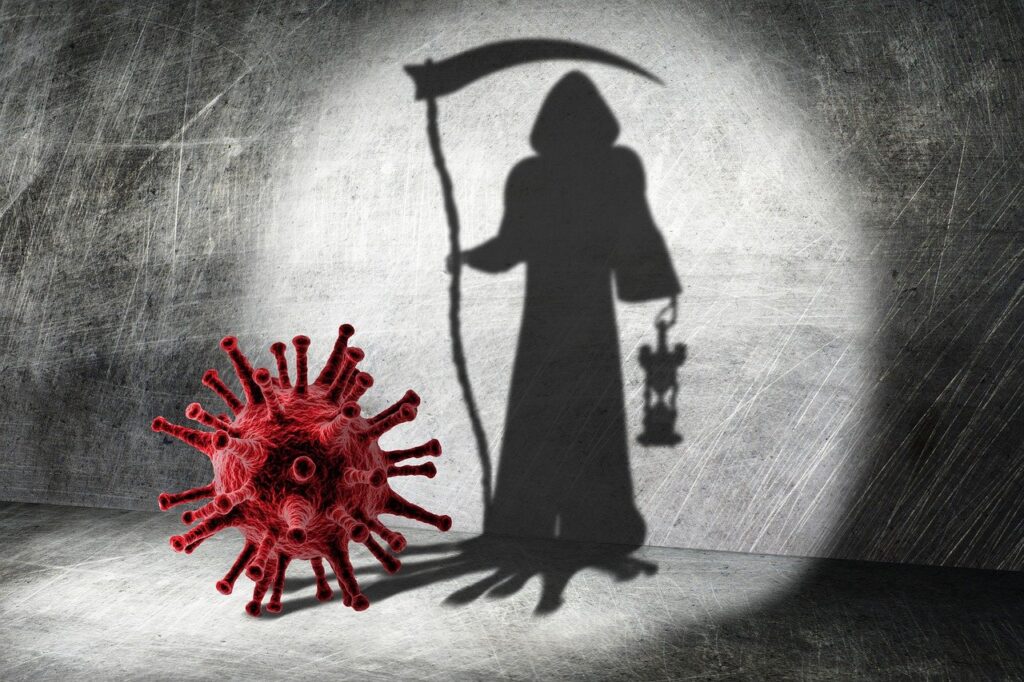Isn’t it weird how we as humans have accepted death as something inevitable?
Hot take, right? But hear me out.
Is death inevitable? Haven’t we been pushing the boundaries on when death claims us farther and farther away? The life expectancy ten thousand years ago was barely 25 years. It grew longer throughout the medieval age. The discovery of germ theory and the leaps in modern medicine led to present-day humans surviving 73 years on average today (100+ years if they are really healthy and lucky).
Would someone from the dark ages consider us immortals then? I would assume so. We would have been treated as science fiction only a couple of hundred years ago. Humans have extended and improved their quality of life like never before. We live in arguably the safest times where we are happier and healthier than ever before.
There’s a story I read that perfectly encapsulates the idea for this article. You can find that story here and even though it is short, it is a fascinating deep dive into how we establish norms based on repetition of our ancestors’ beliefs rather than logically approaching it on our own.
The concept of death is so ingrained in our minds that even the idea of living forever feels alien and outlandish to us.
- Death is a part of life.
- You are born, you grow and learn, aspire to be something, live your dreams and when the time comes, feel content that you did the best you could.
- Death gives life meaning. Without death, we may never appreciate living to the fullest.
- You would be tired of living forever and purposeless. The only reason you strive to live is in fear of death.
These may be the arguments that come to mind, right? But let me present a counterargument. Happiness is not the opposite of sadness. Happiness has its own meaning. You experience pleasure not because you understand what pain is but because pleasure is in itself a distinct feeling. Similarly, life doesn’t need death to give it purpose. Living is a purpose all on its own.
In extension to the above point, diseases like smallpox and cholera were once an accepted part of society until they weren’t. Just as we learned to invent vaccines and improve our quality of life, we also evolved beyond what once was inevitable.
All I ask is to widen your perspective and think of death as not the final form of human life but as a disease for which we do not possess a cure (yet!).
Now that we have that out of the way, the next question is a philosophical one and who better to answer philosophy than the Greeks? What does curing death look like? The story of Thitonus is a great example of wishing without thinking. We wouldn’t be useful or happy if we never die but kept on aging. So does curing death also mean stopping aging? After all, who wants to live forever but as a shriveled-up husk of their former self?
We haven’t been able to do that yet though. Our old age has always been arriving at around the same time of 60 odd years (give or take). Instead of living forever, we have accepted living a fulfilled and happy life so we may walk peacefully into the white light at the end of the tunnel having no regrets. Perhaps rightfully so. Until we have found a solution to slow down aging or stop it altogether (fountain of youth, anyone?), we would always choose death over an eternity of frailing old age. So it goes without saying that eternal youth is a prerequisite for the cure of death.

But just to imagine a scenario where we have reached a metaphorical mountain and hoisted a flag of immortality is exhilarating, isn’t it? What would you do in such a case? Would you slow down the rat race you may be a part of? Would you step out completely and do something different if you had your youth forever? Would you devote more to learning or traveling? Would you simply absorb the beauty of the sunset for a few more minutes if you had forever?
All of this sounds too romantic and unrealistic and perhaps it is but I would argue that only out of this romanticism have we been able to create fictional creatures like vampires and elves who live thousands of years, if not more, and still do not tire of their existence. There are so many examples of immortality in human scriptures, texts, and stories. The fascination with living longer within humanity is so deeply ingrained that it leads me to believe that humans will continue to find ways to break the barrier of age and mortality as advancements in technology and medicines take place.
We may never attain immortality in the truest sense of the word but if we can extend our life span from 80 to 200 years in the future, wouldn’t that give us much more time to enjoy our youth, realize our dreams, make mistakes and recover from, and ultimately lead more fulfilling lives? For us, someone who lives more than twice our normal ages would seem rather immortal.
Perhaps one day, there would be a whole generation of people who could live healthy for as long as they chose to, meet their demise when they want to and not because it was an eventuality. It may seem far-fetched now but so was sending rockets into space at one point in time.
Maybe death is not natural or inevitable but a degenerative disease that we need to shield from as we do against all others. It is perhaps the greatest disease affecting 100% of humans but only until we find a way to fight back and perhaps forever.
